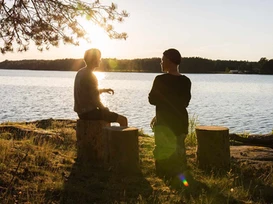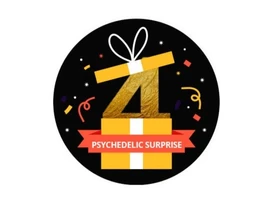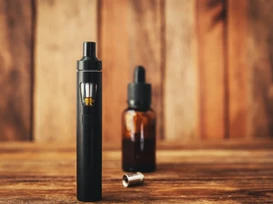How do you tell friends and family about your conscious use of psychedelics?
As the psychedelic renaissance continues to push on and mainstream coverage continues to increase, many of us are becoming more interested in “coming out” of the psychedelic closet to our friends and family. This can be quite a daunting task for a lot of us, due to the many possible risks associated with
such a sensitive topic.

Despite this, being honest and truthful with your close friends and family can prove to be extremely beneficial, and help form a healthier relationship with both your peers and the medicine, as well as help in changing the cultural perception of psychedelics. This will inevitably help reverse the stigma around these substances, and eventually lead to the abolishment of psychedelic prohibition, and allow these medicines to reach those who need it most.
All in all, unveiling our relationship with psychedelics will help in changing the public narrative and improve our relationship with our communities at the same time, although doing it properly and taking the right steps is crucial to having a successful “coming out” conversation. To help with this process, we’ve compiled ten tips to aid you if you’re considering coming out of the psychedelic closet.
This article was realized by the hands of 4 authors; Nikola, Roku, Chandler, and Koen. Thanks to everyone for their involvement.

10 tips on telling others you use psychedelics:
1. Remember Set and Setting: Pick the Right Time and Place
Just like when we use psychedelics and remember rule number 1, set and setting, the same goes for when we engage in deep conversations. Make sure both yourself and your partners in the discussion are in a good mindset and environment to have the conversation. This means staying sober and in a healthy mind state in which all parties can express themselves eloquently. Being face-to-face is very important as well, as this will only improve our ability to communicate well with each other. Think about the place, and minimize the chances of people coming into the room who might not grasp the situation.
With a conversation as touchy as psychedelic use, it’s important to have a peaceful, focused, and safe environment in which to have it, where all parties can be attentive and grounded. No parent would want to hear “I use psychedelic drugs” after having a stressful day at work or before they leave for the airport. Find a time when both yourself and the people you’re speaking with can have an engaged and possibly lengthy conversation, free of distraction. It can be helpful to set a time beforehand, so everyone can confirm their availability and prepare for it.
2. Know The Structure of What You’re Going to Say Beforehand
Having what you’re going to say prepared ahead of time will be incredibly useful in having an effective conversation when the time comes. You don’t want to be digressing or going off on a tangent while trying to communicate something so important; this will only work against you. Plan out the narrative of what you’ll say with a beginning, middle, and end. You don’t have to know everything down to the fine details, but having a structure will help streamline your talk and help lay the groundwork for the discussion that follows.
3. Educate yourself, Stay Honest, and Bring Other Tools that Help You.
Honesty is absolute key. You don’t want to tell half-truths or make psychedelics out to be a better miracle cure-all than they are. Don’t add fluff to your personal psychedelic story, and note that psychedelics sure do have risks and that research is still in its infancy. There are examples of psychedelics harming people when the right precautions were not used. Doing your research about this and opening up about the potential risks leads to being more credible. If you’re not entirely sure about a certain psychedelic fact, say “I don’t know” and perhaps look up the answers together.
Before the conversation, perhaps deepen your knowledge about psychedelics on things you’re not sure about, and consider bringing research to the table without bombarding your peers with research papers. Sure, coming with examples of modern research from organizations like MAPS, John Hopkins, and NYU can help. Providing modern studies from reputable institutions is the key to overcoming the public stigma that currently exists, and reaching those close to us with new data will only accelerate this process. But also more lighthearted films and books about psychedelics “How to Change Your Mind” by Michael Pollen or Fantastic Fungi with Paul Stamets (both on Netflix) can make great outings that can help people get informed with a low barrier of entry.
4. Don’t rush it, be patient
Even if you feel like you want to rip the band-aid off and be honest as quickly as possible, sometimes it’s better to wait and have a good conversation than get it done quickly and have things go sour.
Remind yourself to be patient and find a good time to bring the topic up. Dipping your toes in the water by mentioning psychedelics casually or bringing them up in conversation can be an effective method as well. This gives you more information to see how they react and better plan out your full discussion for the future. Sometimes sharing the documentaries (mentioned in the previous point) beforehand can give your peers a chance to get used to the subject, before going into a conversation.

5. Tell Your Personal Story
The journey we’ve had with entheogens and the changes they’ve brought in our lives are commonly the biggest reasons we come to tell others about it in the first place. It’s okay to be honest. Consider describing your story with psychedelics honestly, and how it changed you. How you were before and after using the medicine, and how it’s impacted you as a person. Hearing the changes we’ve gone through can be a cathartic and emotional experience, and more convincing than reason and logic could be. Honesty can also be a great way to deepen your connection with others. If it isn’t accepted well, it could be tough, but it’ll indicate where you stand with your peers more clearly rather than when you’re being insincere.
6. Open the dialogue, ask Questions
The case for a positive movement around psychedelics can be hard to believe if you’ve spent your whole life under the impression that they are horrible drugs. It’s good to understand your peers better and ask them questions. Perhaps you learn things you didn’t know before, and it opens them up to feeling heard as well, instead of the conversation turning into a monologue. Good questions can be, asking them if they have experiences with psychedelics myself, or how they make them feel. Learn from them as much as you can teach them. Be open to the fact that they could bring wisdom to the table as well. We’re all subjective beings after all.
7. Be Respectful and Stay Calm
It can be easy to get up in arms quickly when talking about something we’re passionate about, especially when discussing it with people who have a different opinion than us. Remember to speak with respect and keep your cool; getting angry, frustrated, or too emotional will reduce your persuasiveness and possibly alienate the person you’re talking to from the topic altogether. Remember what the medicine teaches us, respect and love will go farther than anything else.
8. Understand the Potential Repercussions
Although coming out is an important and integral process of your journey with psychedelics, you’ll need to understand the possible repercussions that can follow if things don’t go as planned. Of course, don’t try to talk to anyone who you think could get you in any legal trouble, as well as any coworkers, as this could put them at risk as well due to company liabilities. Take a calculated risk based on who you’re telling information to, and prepare ahead on what to do if they take it the wrong way.
9. Have a support system
No matter which way things go, it’s important to have a support system that you can come back to where you can connect with like-minded individuals. If you don’t already have one, look for an integration circle or psychedelic society in your area where you can meet new people, talk about your entheogenic experiences, or volunteer for events. We here at Portier also run a discord channel for any individuals who wish to connect virtually.
10. Continue the Conversation
Okay, so you’ve gotten through your coming out talk. Congrats! Well, it doesn’t stop there. Coming out is a process, and the time it takes for people to understand psychedelics typically isn’t a short period. So keep the conversation going over the following months and years. During this time, continue educating yourself as well, to better represent the medicine and aid in the growing movement for its liberation.






 No products in the cart.
No products in the cart.